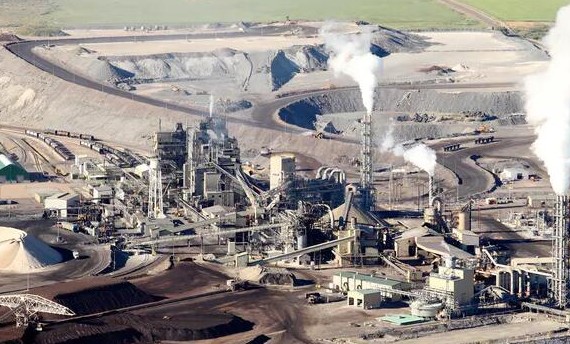It has been ten years since Bitcoin was born. It was revolutionary a decade ago because it demonstrated the need for modern monetary institutions to verify payments. Therefore, Bitcoin relies on encryption technology to prove the authenticity of identity. However, the price to pay for all these innovations is the worryingly high energy consumption of Bitcoin mining. The basis for this mining process is a network of peer-to-peer computers, called validators, that perform proof-of-work. Essentially, this involves computers solving computationally intensive cryptographic puzzles that certify blocks of transactions, which are recorded in a public asset ledger (blockchain). These ledgers are publicly viewable by all computers, which helps the system reach consensus in an unreliable network of participants. Validators are called miners because a computer or node that successfully validates one of the blocks is rewarded for "mining" bitcoins. Therefore, mining is also the process by which Bitcoin adds new coins to the network. But these processes consume a lot of energy. In my 2016 article "Socialism and Blockchain," I estimated that Bitcoin mining consumes 3.38 terawatt hours (TWh) of energy per year, which is equivalent to the total annual consumption of Jamaica in 2014. Recent estimates show that the annual consumption of Bitcoin has grown exponentially, currently reaching a staggering 55TWh. In fact, a new paper in Nature Sustainability states that the energy cost of mining cryptocurrencies exceeds the cost of mining physical metals. The document estimates that Bitcoin emitted between 3 million and 13 million metric tons of CO₂ in the first half of 2018. A Hawaiian research team even believes that if bitcoin usage continues to increase, such emissions will push global warming above 2°C within a few decades. Energy costs to mine Bitcoin are now estimated to exceed the cost of mining the actual metal However, both the Nature Sustainability study and the Hawaii-based research team made assumptions about how the energy would be generated. According to a recent disturbing UN report that is pushing up 1.5°C, humanity should act wisely to improve an "unprecedented transformation of the energy system". The hope is that this shift to large-scale renewable energy will indeed happen, invalidating the assumptions in those papers. Still, concerns about bitcoin's energy consumption persist, so another cryptocurrency, ether, is working on a more energy-efficient consensus algorithm called "proof of stake." This approach differs from proof-of-work because miners on this network use their financial stake to prove transactions, and as a result, they do not perform energy-intensive computations. This raises some complex questions - in particular, how do you ensure that people in this network act honestly, since they don't lose anything for their dishonest behavior? Ethereum’s proposed solution is by introducing penalties, such as penalizing miners for producing blocks on both blockchain versions at the same time. After all, only one of these blockchains is valid. Bitcoin’s proof-of-work implicitly overcomes these problems because it involves a natural penalty whereby miners must expend effort to prove transactions. In economic game theory, a Nash Equilibrium is considered to be reached when the system is stable, since no one will change strategy to achieve a stable state. Since the miner's block is only rewarded when it helps form a valid Bitcoin blockchain, the most profitable outcome for each miner, or Nash Equilibrium, is with the big Most miners reach a consensus. Therefore, Bitcoin's proof-of-work algorithm has been proven to be effective despite the excessive energy consumption. Worth the price? Essentially, my work focuses on whether blockchain is a powerful rebuttal to the capitalist hierarchy. If Bitcoin can facilitate a way of organizing that does not rely on capitalist consumption, then this could indirectly reduce society’s energy use and help mitigate its impact on the environment. Consider the worrying recent report from the World Wildlife Fund (WWF), which all but blamed capitalism for the sharp decline in wildlife numbers. So, perhaps Bitcoin's revolutionary proposal as an alternative to capitalism means its energy use is a price worth paying? If Bitcoin mining is not the main driver behind climate change, which reduces consumption in the rest of society, then this argument will carry some weight. However, even so, given the urgency of environmental degradation, this may not be acceptable if we continue to produce energy in a way that generates so much warming CO₂. Perhaps other consensus schemes, such as Ethereum's Proof of Stake, provide a partial solution. If humanity is to avoid a climate catastrophe, we need urgent action to find solutions to produce clean, sustainable energy. If we do this, humanity will benefit, as will Bitcoin as a by-product. GALOCE Force Washer Transducers are miniature load cells designed specifically for measuring fastener clamping forces. The design provides high stiffness in a small package, making these load cells ideal for static and dynamic measurements on fasteners, or structural test applications where space limitations exist. Force washer transducers come in a variety of English and Metric sizes, by the way, GALOCE OEM&ODM group can customized the Load Cell according the drawing. Force Washer Load Cell,Force Washer Transducers,Washer Typer Load Cell,Through-hole force sensor GALOCE (XI'AN) M&C TECHNOLOGY CO., LTD. , https://www.galoce-meas.com